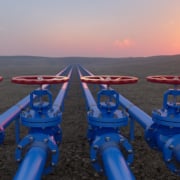What Lies Ahead for Carbon Capture – Environmental and Subsurface Perspectives for CCUS
Carbon capture, utilization, and sequestration (CCUS) projects are gaining momentum as an important pathway to achieving both private- and public-sector climate targets. This trend is expected to accelerate with recently authorized federal funding and administration announcements. At the same time, the value proposition for CCUS may be subject to change based on government policy priorities, permitting processes, and potential permanence challenges, among other factors. So what lies ahead for carbon capture?
Sidley’s latest carbon capture webinar, “What Lies Ahead for Carbon Capture — Environmental and Subsurface Perspectives for CCUS,” provided valuable insight in answering this question.
Continuing with Sidley’s carbon capture webinar series, on March 9, 2022, Sidley environmental and energy partner and environmental, social, and governance practice co-lead, Heather M. Palmer, moderated the webinar panel discussion among leading female professionals in the carbon capture arena. Panelists included White House Council on Environmental Quality (CEQ) Director for CCUS and U.S. Department of Energy Director for Minerals Sustainability Sarah Forbes; Schlumberger New Energy Senior Geologist and co-author of the first commercial carbon dioxide (CO2) geologic sequestration federal permit Stephanie Cook; and Sidley Senior Policy Adviser and former U.S. Environmental Protection Agency (EPA) Associate Administrator for Policy and Senior Counsel to the Administrator Brittany A. Bolen.
The panelists covered a collection of policy, legal, and technical perspectives on key environmental and subsurface considerations and trends for CCUS in the United States. Forbes provided an overview of the Biden administration’s views on carbon capture, highlighted key carbon capture provisions of the bipartisan Infrastructure Investments and Jobs Act, and walked through the details of CEQ’s recently issued interim CCUS guidance. Cook gave a presentation on CCUS site selection considerations and permanence challenges and offered unique insights from her work on over 50 potential CO2 storage sites across the U.S. and Canada. Bolen presented on regulatory and policy considerations for CCUS projects, including a detailed account of EPA and state-approved Underground Injection Control Class VI well permitting programs for deep geologic sequestration of CO2.
Additional information on the webinar, including access to the webinar presentation, is available here.
This post is as of the posting date stated above. Sidley Austin LLP assumes no duty to update this post or post about any subsequent developments having a bearing on this post.


